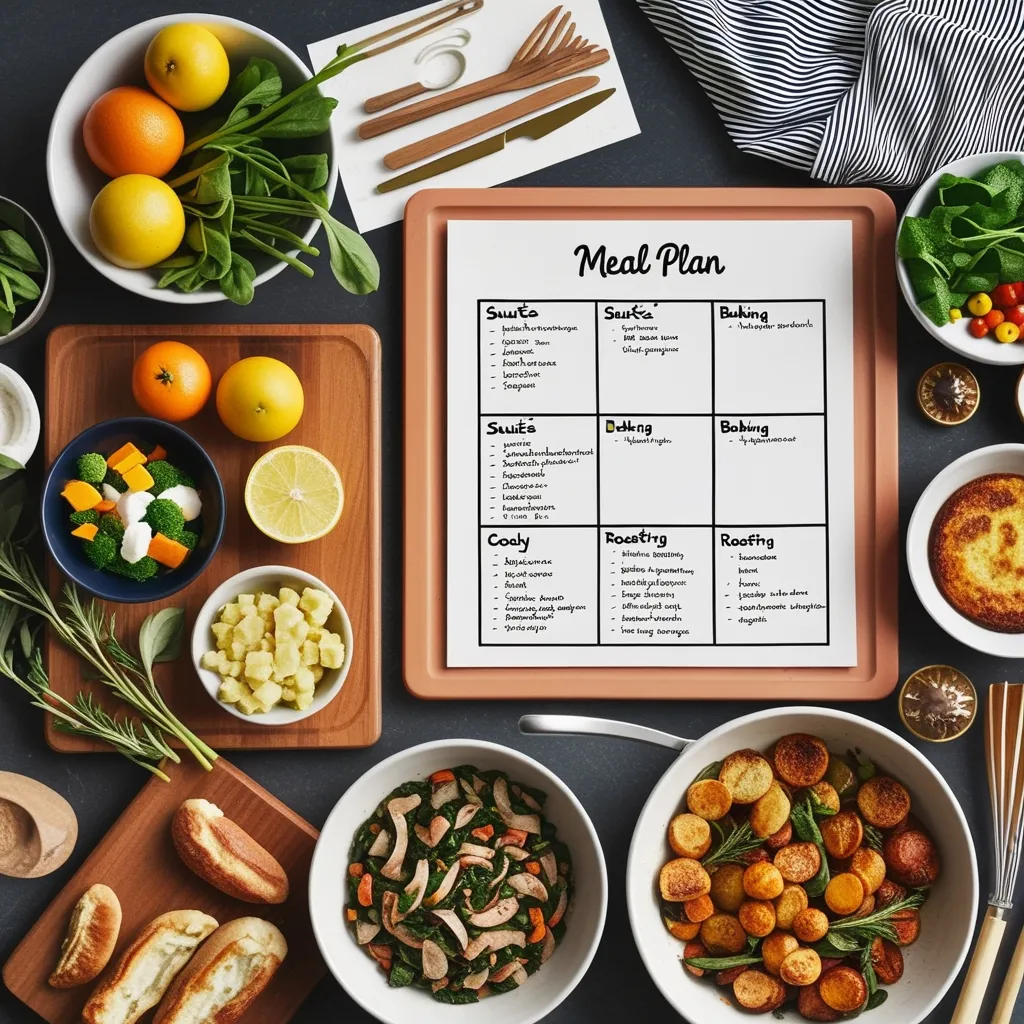Learning how to cook from scratch isn’t just about being able to whip up some tasty meals - it’s a game-changer for your health, your wallet, and your overall lifestyle. When you know the basics, plan your meals, and make the most of what you’ve got on hand, you can turn into a kitchen whiz in no time.
Before diving headfirst into complex recipes, getting a handle on some fundamental cooking techniques is crucial. Think of it as laying the groundwork for any good meal. From nailing your knife skills to understanding different cooking methods like sautéing, stir-frying, baking, and roasting, these basics will make your cooking adventures more fun and way less stressful.
Take sautéing, for example. It’s super versatile and quick, perfect for whipping up veggies, meats, or tofu. All you need is a pan, a bit of oil, and your ingredients. Heat up the pan over medium-high, add the oil, let it warm up, and then toss in your stuff, stirring frequently until everything’s evenly cooked.
Menu planning is another key player in the cooking-from-scratch game. Not only does it keep you organized, but it also saves you time and money while helping you stick to a balanced diet. Start by sketching out your meals for the week. Balance your proteins, vegetables, grains, and other food groups. Check your pantry, fridge, and freezer to see what you already have, so you don’t end up buying doubles.
Got a bag of dried black beans? Great! You can base a few meals around those, like beans and rice or a hearty bean stew. Planning like this reduces waste and makes your grocery shopping trips quicker and more efficient.
Being a smart shopper goes hand-in-hand with cooking healthy meals on a budget. Once you have your meal plan sorted out, make a detailed shopping list. Be flexible with the items and keep an eye out for sales. Loading up on fruits and vegetables while cutting down on meat can save you some cash. Beans, for instance, are an awesome meat substitute in dishes like burritos, tacos, and pasta.
When you hit the store, compare Nutrition Facts labels to snag the healthiest options. Fresh produce is usually cheapest when it’s in season, so consider hitting up farmers markets for fresh, affordable fruits and veggies. Stock up when you can and freeze the extras.
Cooking in bulk and using leftovers is a brilliant way to save time and money. Cook bigger portions and store the extras in airtight containers, either in the fridge or freezer. This concept, known as “cook once, serve twice,” can simplify weeknight dinners.
Imagine cooking a large batch of rice or beans. These can serve as the base for several meals. Leftover roast chicken can be tossed into sandwiches, stir-fries, or salads the next day. This method not only cuts down on waste but also saves you precious time, especially during busy weeks.
Speaking of freezing, it’s a fantastic way to preserve ingredients and meals. Frozen fruits and veggies are harvested at their peak and frozen quickly to lock in all that good taste and nutrients. They’re super convenient since you just have to heat them up, with no peeling, cutting, or coring required.
You can also freeze cooked meals like soups, stews, and casseroles. These make-ahead meals are lifesavers for crazy days when you can’t find time to cook. Just thaw and reheat, and you’re good to go.
Whole grains are another powerhouse ingredient to keep in your kitchen arsenal. They give you more nutritional bang for your buck and keep you feeling full longer. Stock up on whole-wheat bread, whole-grain pasta, brown rice, sorghum, and quinoa. They’re more filling and nutritious compared to refined grains.
For instance, swap out white rice for brown rice to up your fiber and nutrient intake. Whole-grain pasta also packs more fiber and helps you stay fuller.
Eating healthy doesn’t have to mean boring meals. Here are some fun and budget-friendly meal ideas:
- Beans, Greens, and Rice: Cook some dried black beans with your favorite spices, serve them over rice, and add a side of steamed greens. It’s cheap, delicious, and loaded with protein and fiber.
- Vegetarian Enchilada Bake: This Tex-Mex-inspired dish is loaded with colorful veggies, beans, and cheese. Make it in bulk and reheat as needed for a hearty, satisfying meal.
- Keema Curry: This flavorful curry features ground beef, potatoes, onions, garlic, and a mix of spices. It’s protein-packed, full of veggies, and ready in under 30 minutes.
Life can get hectic, and meal planning might sometimes fall through the cracks. Here are a few practical tips to stay on track:
- Create a Backup Plan: Keep your pantry stocked with canned convenience meals like canned chicken and gravy or white bean chicken chili. They’re perfect for those days when cooking from scratch just isn’t happening.
- Assign Chores: If you live with family or roommates, get them involved. Assign simple tasks like checking the meal plan or defrosting meat for the next day to spread the workload evenly.
- Use One-Pot Meals: Stews, casseroles, and other one-pot wonders are great for busy days. They minimize cleanup and can be cooked in a single vessel, saving you time and effort.
In the end, cooking from scratch is a skill worth mastering. It can significantly boost your health and save you money. By getting the hang of basic techniques, planning your meals, shopping smart, and making the most of leftovers, you’ll be creating tasty, nutritious meals without breaking the bank. Flexibility, creativity, and resourcefulness in the kitchen go a long way. With practice, you’ll soon be whipping up healthy, cost-effective meals like a pro.






